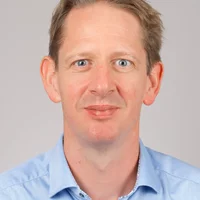General Information
Proposals
Proposers interested in an experiment at SuperXAS are strongly encouraged to contact the beamline scientists prior to submitting a proposal. Proposals have to be submitted using the SLS Digital Users Office (DUO) system.
The scheduling periods and deadlines for calls for proposals can be found in detail at SLS Proposal Calls.
Long-term proposals extend over three scheduling periods. Justification for submitting a long-term proposal should be compelling. In general, proposals for experiments that are considered to be "high-risk" are unlikely to obtain long-term status until their feasibility has been proven. Even then, it should be apparent to the PRC, such as through publications in high-profile journals, that long-term status is justified.
Beamline Schedule
Preparing your beamtime
PSI User Office - Before Arrival
It is recommended that the proposer contact the relevant beamline scientist to obtain any information required for preparing his/her experiment prior to the beamtime. He/she should first carefully check this website to see what is available at his/her endstation of interest. In addition, requests for dosimeters can be obtained by the DUO, as well as the information about accommodation at the guesthouse and nearby hotels can be obtained here.
It is important that the forthcoming user has checked with the beamline scientist the following considerations:
1. Desired photon energy?
2. Do you require the QEXAFS monochromator (time resolution below 10 s)
3. What detector type is desired (Fluorescence, Transmission, High resolution fluorescence detection)
4. What sample environment is needed (temperature, pressure, gases, etc)?
5. Sample mounting possibilities and constraints?
Setting up an experiment is, in general, performed as part of the allocated beamtime, in other words, it is not expected that the previous user finishes early in order to allow the next user to prepare the experiment in advance. Under favorable circumstances, it may be possible to complete some part of setting up in the experimental hutch in advance. This depends on whether the hutch is being used by another user immediately prior to one's beamtime. Check with your local contact.
Adaptor plate for you setup
Please, make an adaptor plate for your setup so that it fits to our sample manipulator (the drawings of the top part of the Y-stage are provided in the Endstation description). We will not accept setups mounted with scotch tape!
Standard equipment
Standard setups can be booked (at least 2 months in advance by e-mailing to the local contact):
1. Gas bottles of particular gas mixtures
2. Gas blower heaters : (1) RT-900 K or (2) RT-1200 K
3. Liquid nitrogen cryojet ( 100K – 500 K)
Special equipment
Special setups can be provided in the framework of a collaboration with beamline staff:
1. Mass-spectrometer
2. Capillary plug-flow reactor
3. Gas mixing setups
4. Other facilities
Importing experimental equipment
It is strongly recommended that the user ensures that all necessary preparations have been made for the import of any equipment that needs to be checked through Swiss Customs. Failure to do this can lead to substantial delays and possible loss of some or all of the allocated beamtime. A comprehensive description of the necessary steps to take are given here, including contact details if there are any uncertainties or questions.
During experiment
Shift Schedule
Morning shift: 07:00 - 15:00
Evening shift: 15:00 - 23:00
Night shift: 23:00 - 07:00
